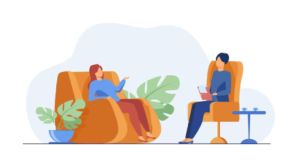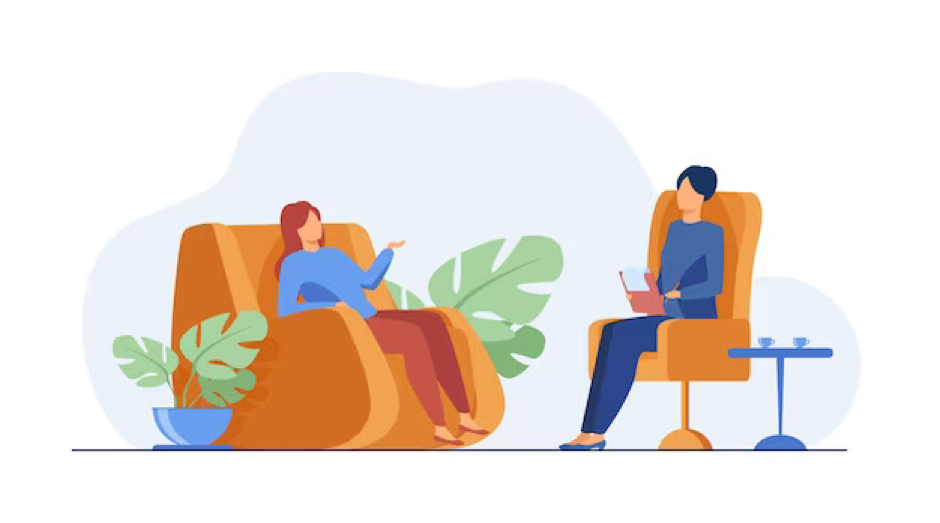The word “phobia” must have been heard at least once by everyone. Fear of falling and aversion to loud noises are two universal phobias that affect every human being at birth. Another term that is frequently used in this context is “claustrophobia,” which has historically been misinterpreted as difficulty breathing in small spaces like a lift. But it’s a wrong and erroneous application of the phrase. We must first understand the proper definition in order to properly comprehend phobias. Literally meaning “Fear,” phobia is a sort of anxiety illness that manifests as an excessive and irrational fear of a specific thing or circumstance. Most people find it embarrassing to discuss their phobias, which may cause them to avoid situations where they might have to.

What Is Phobia?
Phobia has a scary sound. It is because a phobia is a particularly intense form of fear. In general, none of us enjoys feeling afraid since it makes us uneasy and causes unpleasant sensations. It is impossible to think of anything with a higher intensity. It may be more horrifying to say. The word “phobia” may be difficult for some people to understand, but for those who have actually had one, it is a monster.
Specific phobias are different types of phobias that are based on certain circumstances and things. The typical signs include: Strong sense of panic, desire to avoid, thoughts of death, racing heart, trembling legs, heavy chest, shallow breathing, light-headedness, and making departure preparations are all symptoms of terror.
Signs and symptoms of phobia
The Diagnostic and Statistical Manual, Fifth Edition states that a specific phobia diagnosis must meet certain requirements. These consist of:
- Exaggerated, unreasonable, and irrational worries brought on by a particular thing or circumstance
- When faced with a particular circumstance or object, immediate anxiety reactions (such a quick heartbeat) are irrational in response to the actual risk.
- People will go to great efforts to avoid items or circumstances that give them great anxiety or significant distress.
- It significantly affects a variety of facets of the person’s life.
- More over six months have passed since it started.
- There is no other disorder linked to the intense dread.
Types of phobia
- Acrophobia – fear of heights
- Aerophobia – fear of flying
- Arachnophobia – fear of spiders
- Astraphobia – fear of thunder and lightning
- Autophobia – fear of being alone
- Claustrophobia -fear of confined or crowded spaces
- Hemophobia -fear of blood
- Hydrophobia – fear of water
- Ophidiophobia – fear of snakes
- Zoophobia – fear of animals
Effects of phobia
Psychological disorders such as social anxiety disorder, separation anxiety disorder, panic disorder, OCD, trauma-related disorder, eating disorder, or schizophrenia disorders can develop in phobia sufferers. An individual’s social, personal, and professional lives can become chaotic as a result of phobias, which can interfere with daily functioning.
Extreme anxieties of this nature often have a physical impact on the sufferer, such as breathing problems, an abnormally high heart rate, upper body tension, etc. They also tend to have a significant psychological influence on the person, leaving them more vulnerable to depression and frequent panic attacks if untreated for an extended period of time. Just the beginning of a problem that would get worse over time include self-isolation, avoiding social situations, and embarrassment when discussing their mental health conditions. But phobias are diagnosable mental illnesses that can be treated with self-exposure treatment or internet counselling.
Where can I get best phobias counselling?
At TalktoAngel, we have a group of expertly qualified online phobia counsellors who work with people to help them successfully deal with the difficulties of phobias. Adolescent counselling is available 24/7 on chat or phone in your favourite language, such as Hindi or English, both inside and outside of India. Your information is kept completely private and anonymous when you seek guidance from one of our top online counsellors. Our highly qualified online phobia counsellors strive to increase knowledge and establish realistic goals for a smooth transition.
Therapy for phobia
There are two basic methods for treating phobias: medication and psychotherapy.
Medication
Phobias are treated with medication to lessen their effects. When used in conjunction with psychotherapy, medication performs better.
Psychotherapy
Two major methods are employed in psychotherapy to address phobias:
Therapy using cognitive behaviour
The goal of CBT is to teach the client how to change their thoughts and behaviours in order to overcome their phobic reactions and negative automatic thinking.
Exposure Therapy
The patient is gradually exposed to the fear during exposure therapy, sometimes referred to as desensitisation.
If you are looking for the “online counsellor” connect with India’s No. 1 e-platform TalktoAngel for psychiatrist near me

